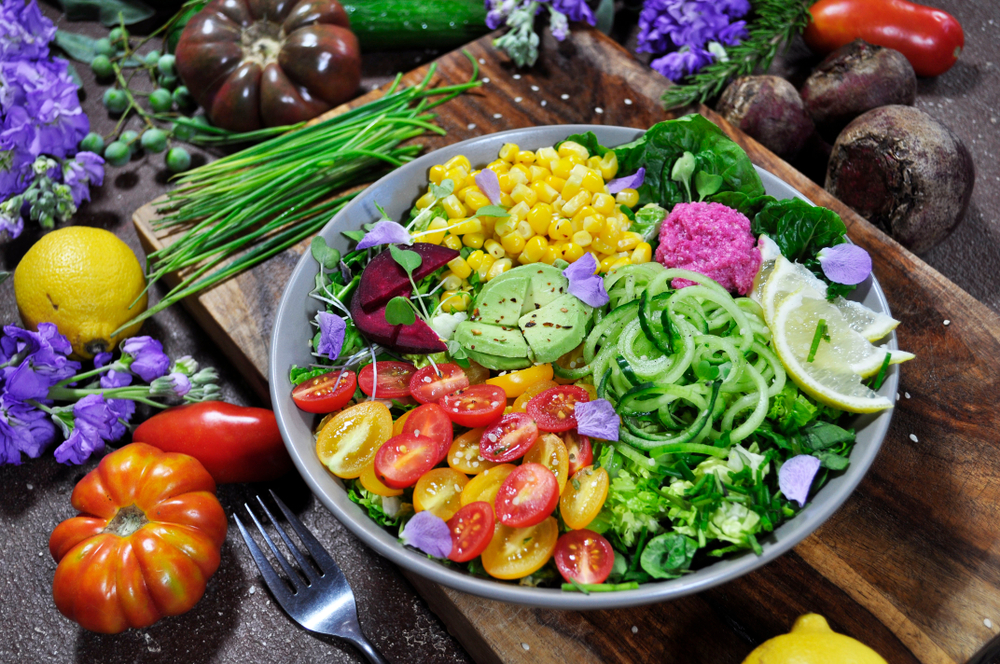Looking to restore energy and vitality? Incorporating whole foods into your daily healthy meal could be the game-changer you need! These unprocessed, nutrient-rich ingredients—like vegetables, fruits, seeds, and whole grains—offer profound nourishment for your body. But how can you include them without turning every dish into a bland, monotonous meal? Explore practical tips and the surprising benefits of whole foods to transform your health and rekindle your love for delicious, wholesome meals.
Why Choose Whole Foods?
Whole foods are unprocessed and packed with essential fibers, vitamins, minerals, and antioxidants. Unlike highly processed products that often compromise nutritional quality and weaken the immune system, whole foods actively support your health. According to a Harvard University study, the fiber found in whole grains reduces the risk of heart disease and type 2 diabetes, offering a strong incentive to rethink your daily diet.
In addition to vital nutrients, whole foods also bring unparalleled natural flavors. Did you know that a simple slice of whole-grain sourdough bread contains up to 200 aromatic compounds? These flavors far surpass the uniform and artificial tastes of processed foods.
The Physical Benefits of Whole Foods
Sustainable Energy Boost
Adding whole foods like fruits, vegetables, and grains to your daily healthy meal delivers steady, lasting energy. Unlike refined sugars that cause temporary spikes, the complex carbohydrates in whole grains digest slowly, providing constant fuel. The World Health Organization confirms that diets rich in whole foods help regulate blood sugar levels, reducing fatigue from energy fluctuations.
Digestive Wellness
Fiber, abundant in whole foods, is vital for a healthy digestive system. It ensures regular bowel movements and nurtures gut microbiota, the microorganisms that enhance immunity and mental well-being. A French study by INRAE revealed that fiber from whole grains improves microbiota diversity, leading to better digestion and stronger immune systems.
Enhanced Immunity
Antioxidants in whole fruits and vegetables shield cells from damage caused by free radicals. Vitamin C in citrus fruits and vitamin E in seeds and nuts are key players in boosting your immune defenses. Research from University College London shows that colorful vegetables, berries, and nuts enhance the body’s resilience to infections.
Healthy Weight Management
Rich in fiber, water, and protein, whole foods promote satiety while being naturally low in calories. Adding more fruits, legumes, and vegetables to your daily healthy meal reduces calorie intake and keeps hunger at bay. A study by Laval University in Canada found that increased fiber consumption reduces cravings and supports a healthy weight.
How to Incorporate Whole Foods into Your Daily Routine
Cook Simple, Nutrient-Packed Recipes
Create meals where whole foods shine—vibrant salads, quinoa bowls with vegetables, or homemade fruit compotes. Even a quick oatmeal bowl topped with fresh fruits and nuts can deliver a nutrient-packed breakfast in under 20 minutes.
Choose Whole Over Processed
Ditch pre-made sauces in favor of nut butters like tahini or unsweetened peanut butter, or use high-quality extra-virgin olive oil. This small swap cuts out excess salt, hidden sugars, and additives while enhancing the natural flavors of your dishes.
Opt for Nourishing Snacks
Replace sugary, processed snacks with wholesome options like a handful of nuts, an apple, carrot sticks, or fresh dates. A University of California study found that nuts improve concentration and reduce hunger, making them an excellent choice for healthy snacks.
Upgrade Your Favorites
No need for drastic changes! Simply substitute regular pasta with whole-grain varieties, add fresh veggies to sandwiches, or swap white rice for quinoa or brown rice in your meals.
Inspiring Recipes to Try
- Quinoa Salad with Vegetables and Seeds: Combine quinoa with shredded carrots, beets, spinach, and sunflower seeds for a colorful, nutrient-dense meal.
- Oatmeal with Fresh Fruits and Nuts: Cook oats with plant-based milk or water, and top with banana slices, berries, chopped nuts, and a dash of cinnamon.
- Roasted Seasonal Vegetables: Roast carrots, sweet potatoes, zucchini, and other vegetables with olive oil and herbs for a simple yet flavorful side dish.
Conclusion:
Incorporating whole foods into your daily healthy meal is more than just a dietary choice—it’s a lifestyle. By fueling your body with pure, nutrient-dense ingredients, you unlock its full potential for wellness. Ready to embark on a journey of authentic flavors and unparalleled health benefits? Your body and taste buds will thank you!
References:
- Harvard University – Whole grains and heart health : https://www.hsph.harvard.edu
- University College London – Impact of antioxidants on immunity : https://www.ucl.ac.uk
- University of California – Nut consumption and cognitive function : https://www.ucdavis.edu
- American Heart Association – Benefits of fruits and vegetables : https://www.heart.org


